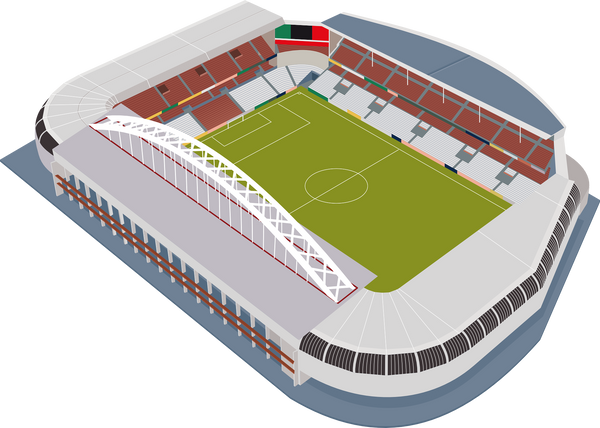Stadiums around Australia using facial recognition technology. What it means for your privacy.

As technology continues to evolve, so do its applications. One such advancement that is rapidly gaining ground is facial recognition technology (FRT). While this technology holds the potential for enhancing security, its use in public spaces like stadiums is sparking an already hot debate on privacy and data security. Because of the unique nature of biometric information, it is considered "sensitive data" under privacy legislation.
CHOICE analyzed the privacy policy and conditions of entry statements of ten stadiums and stadium operators around Australia and found that Sydney Cricket Ground (SCG), Allianz Stadium, Melbourne Cricket Ground (MCG), and Qudos Bank Arena allow for facial recognition to be used, but the operators were vague about consent and terms and conditions.
Consumer data advocate Kate Bower says any entities using facial recognition technology (FRT) need, at a minimum, to be upfront with customers about where and why it is being used and whether the data is being shared or stored.
Their lack of transparency raises concerns. For instance, Qudos Bank Arena, a major concert venue in Sydney, is owned by TEG, a company best known for owning Ticketek and being a major data broker. This creates a worrying link between biometric data collection and the sale of such data.
No face, no name, no number
Until specific laws regulate facial technology use and transparency, all you can do is try to protect your data as much as you can with the tools that already exist to help you. You can say 'No' to facial recognition by avoiding attending venues that use it. If not possible, reduce your digital footprint to make it more difficult to correlate your face/ digital identity.
Limit Your Social Media Presence: Social media platforms often use FRT to identify individuals in photos. Consider minimizing your social media presence and avoiding tagging photos.
Use a VPN - Bitdefender VPN allows you to browse privately and protects your privacy and anonymity. Since it removes tracking, it's incredibly difficult for anyone to figure out who you are. That reduces the information linked to your photos in facial recognition databases.
Use Digital Identity Protection to check out what information about you is on the web and can be tracked back to you. It scans millions of websites and monitors the underground networks to check if your information is leaked on the Dark Web. You receive notifications about the event, details about your data, and easy, 1-click action items to minimize risks.
Identity Protection Score, a Digital Identity Protection service feature, gives you a 360-degree view of your online identity. It is a number calculated based on the analysis of your data breach exposure, including the number of data breaches you're linked to, and the type of information compromised.
Read more about our identity protection and privacy solutions here.
tags
Author
Cristina is a freelance writer and a mother of two living in Denmark. Her 15 years experience in communication includes developing content for tv, online, mobile apps, and a chatbot.
View all postsRight now Top posts
How to Protect Your WhatsApp from Hackers and Scammers – 8 Key Settings and Best Practices
April 03, 2025
Outpacing Cyberthreats: Bitdefender Together with Scuderia Ferrari HP in 2025
March 12, 2025
Streamjacking Scams On YouTube Leverage CS2 Pro Player Championships to Defraud Gamers
February 20, 2025
How to Identify and Protect Yourself from Gaming Laptop Scams
February 11, 2025
FOLLOW US ON SOCIAL MEDIA
You might also like
Bookmarks







